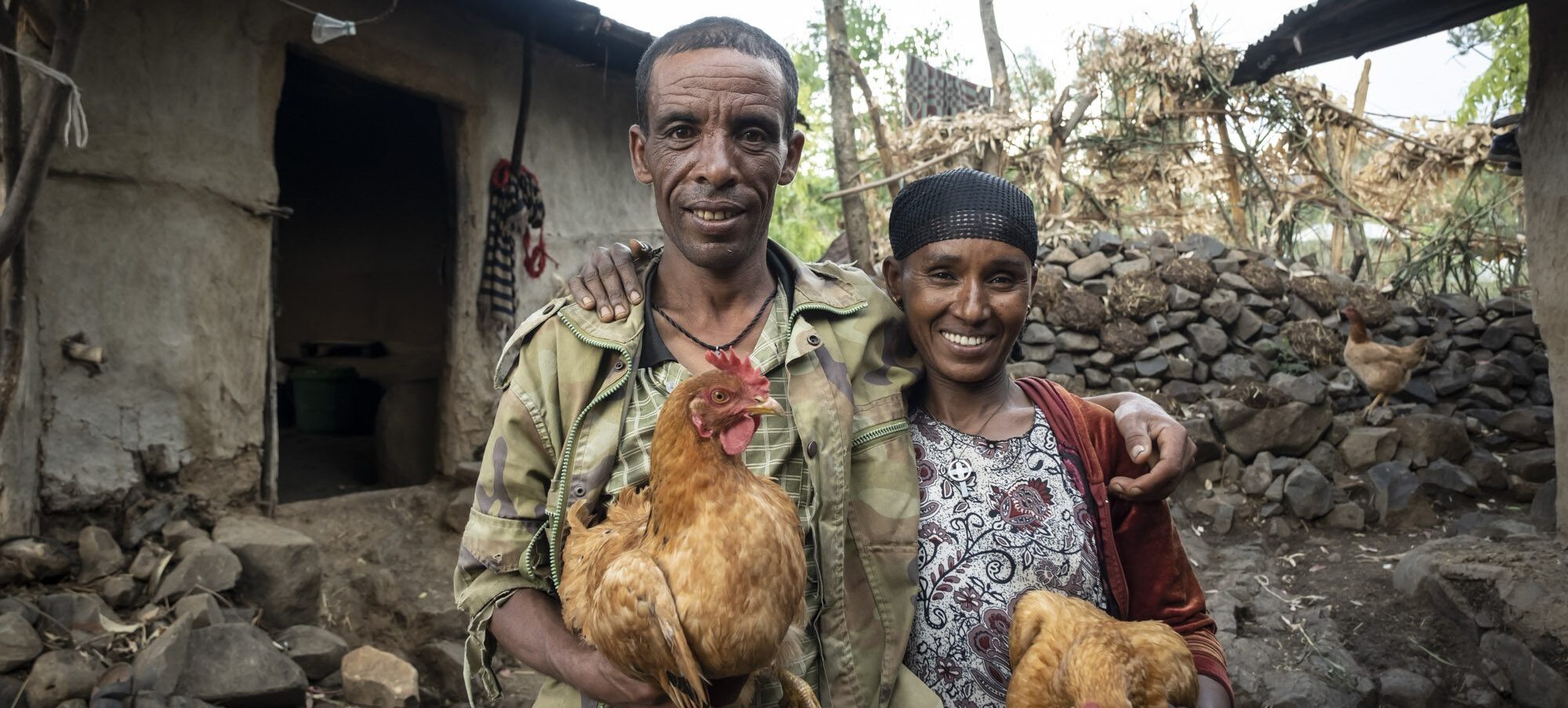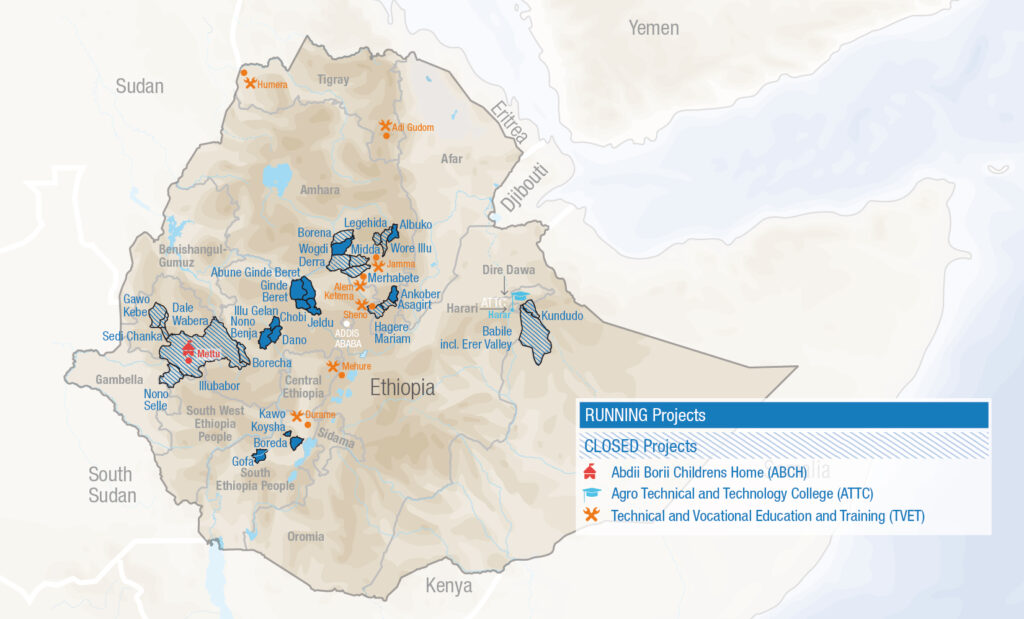
Project area Albuko
General information
Since 2023, Menschen für Menschen has been running an integrated rural development project in the woreda (district) of Albuko according to the tried-and-tested principle that is always adapted to social developments. The woreda is located approx. 430 kilometres north-east of Addis Ababa in the South Wollo Zone of Amhara Regional State. The 492 km² district with 15 municipalities and three urban administrative units extends between 2,300 and 3,000 metres above sea level. The almost 112,500 people live mainly from agriculture and livestock farming.
Project start: 2023
Area: approx. 492 km²
Population: approx. 112,500
Location: approx. 430 km north-east of Addis Ababa

Initial situation before the start of the project
In Albuko, as in other areas of Ethiopia, the inhabitants face many challenges. The majority of families live from agriculture, but crop yields are low due to the topographical conditions, as some slopes are too steep to be farmed effectively. In addition, the problem of soil erosion is constantly worsening, depriving families of their livelihoods.
The lack of clean drinking water is one of the biggest challenges that people in Albuko face on a daily basis. Only around half of the population has access to hygienically safe drinking water. The rest have to draw water from unprotected sources. As a result, diarrhoea and other diseases transmitted by contaminated water are widespread.
The schools, traditionally built from clay and wood, are rapidly falling into disrepair. The dark and poorly equipped rooms do not provide a suitable learning atmosphere, which means that pupils often stay away from lessons.
The existing health facilities are not sufficient to provide medical care for the population and only 65% of people in Albuko have access to good medical care. Many childhood diseases that could be prevented by a simple immunisation are still widespread due to a lack of life-saving vaccines.
Women traditionally bear the main burden in the household and in caring for the children. They are also responsible for procuring water and firewood. They have hardly any income opportunities of their own.